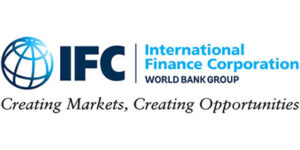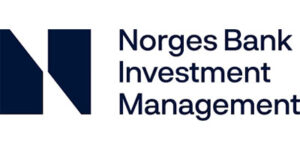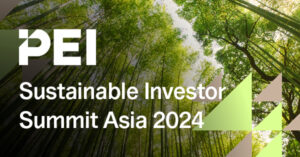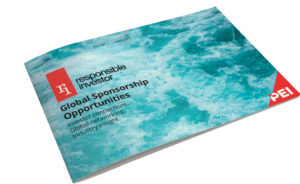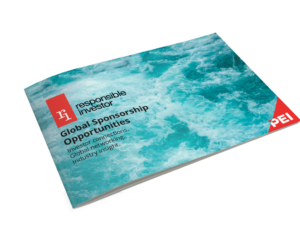
Realising a Just Transition in Asia
As the leading event for sustainability in public markets and fixed income, join the Responsible Investor Asia 2024 conference to connect with an audience of ESG, sustainable finance, and responsible investment professionals in Asia.
As different jurisdictions in Asia in 2024 have released their own taxonomies, the role of meaningful sustainability effort in finance is moving rapidly from theorizing and frameworks, into practice and action. Learn from those leading the effort, from asset owners, fund managers, banks and corporates, on how they are implementing their sustainability, disclosure and net zero commitments.
Co-located with the Responsible Investment Forum Asia which will convene sustainability leaders across private markets.
2023 asset owner attendees included:
2023 speakers included:

What to expect at the forum?
Valuable insight into the sustainable finance industry
Hear from industry leaders on topics and trends that are shaping the investment landscape during high-level discussions critical to advancing Asia’s future economy.
Expand your professional network
Connect with stakeholders in all aspects of the ESG spectrum. From banks, pension funds, insurers, NGOs, think tanks, and financial regulators. Build your network to advance your professional horizons.
Asian-focused content with a global perspective
With a well-established network of sustainable finance practitioners, Responsible Investor will bring together both local and international attendees to discuss how to progress Asian business in a sustainability-conscious world.
Key event themes
» Scaling transition finance in ASEAN
» Protecting and restoring Asia’s biodiversity: the role and responsibility of investors
» ESG engagement in Asia: tools, tactics and timelines
» Corporate transition plans: a question of credibility
» ESG data in public markets: challenges and the next frontiers
» Physical risk, resilience, and climate adaptation
» ISSB, GRI, TNFD: the evolution and interoperability of reporting standards
» Transition investing & the fixed income market
» Deep dive into blended finance solutions
Part of the Sustainable Investor Summit Asia
The Sustainable Investor Summit Asia will convene thought leaders from both private and public markets across Asia and beyond with a focus on the ongoing evolution of sustainability in Asian financial markets.
Apply for a complimentary asset owner pass
A limited number of complimentary passes are available for eligible asset owners to join the event.
Complimentary investor passes are limited to foundations, endowments, trusts, insurance companies, single family offices, sovereign wealth funds and pension funds who are actively making fund commitments and do not engage in third-party fundraising activities or collect fees for advisory/consulting services.
Please register your interest and a member of our team will be in touch to confirm your eligibility.
Connect with investors & ESG professionals
Responsible Investor Asia provides an opportunity to make connections with an exclusive audience of ESG and sustainable finance decision makers.
Share your solutions, collaborate and network with senior-level executives through bespoke sponsorship packages to meet your 2024 business goals.
Be recognised as driving the future of sustainable finance to institutional investors in Asia
Sponsoring at Responsible Investor global events positions your company at the forefront of key decision-makers and ensures your profile gains a competitive advantage within the industry. Enquire about bespoke sponsorship packages to:
- Align your brand with Responsible Investor’s authoritative content-led event portfolio and be seen as a go-to solution provider for senior ESG and sustainable finance professionals.
- Stand tall amongst your competitors by positioning your company at Responsible Investor Asia and embed your brand as a major player to senior institutional investors.
- Raise your profile as a thought leader within the industry to overcome the key challenges within responsible investing.
- Showcase your institutional investor solutions, in-person to new global audiences and generate new business opportunities to achieve your targets.
2023 sponsors included:
Join leading Asian asset owners & industry professionals
Hiroshi Komori
Senior Director, Stewardship & ESG, GPIF
RI events around the world have been beneficial to catch up on ongoing ESG issues and network with great people.
Andrea Palmer
ESG Lead, PGGM
I appreciate the quality of the delegates and the conversations. It’s the go-to venue to gauge developments in ESG integration.
RI Asia 2024 agenda coming soon.
For more information on the agenda, please contact Boris Petrovic.
boris.p@pei.group | +44 (0)20 3307 2474
Pre-Event Resources
For more information on speaking in 2024, please contact Boris Petrovic.
boris.p@pei.group | +44 (0)20 3307 2474
2023 speakers included:

Herry Cho
Managing Director, Head of Sustainability and Sustainable Finance, Singapore Exchange (SGX)

Satoshi Ikeda
Chief Sustainable Finance Officer and Deputy Commissioner for International Affairs, Financial Services Agency, Government of Japan

Mushtaq Kapasi
Managing Director and Chief Representative, Asia Pacific, International Capital Market Association (ICMA)

Markus Müller
Chief Investment Officer ESG and Global Head of Chief Investment Office, Deutsche Bank - Private Bank
Network at Asia's leading responsible investment event
Build lasting relationships and compare best practices with your peers.
The RI Asia conference returns this October to unite ESG, sustainable finance, and responsible investment professionals for two days of networking at this must-attend event to learn, share, and debate ESG opportunities and challenges.
Building relationships at RI Asia isn’t just about exchanging business cards; it’s about finding common ground and shared goals. Collaborations forged here can be the cornerstone of future projects and initiatives.
Your networking experience
Expand your professional network
Connect with stakeholders in all aspects of the sustainable finance spectrum, from banks, pension funds, insurers, NGOs, think tanks, and financial regulators. Build your network to advance your professional horizons.
Meet with local and global practitioners
With a well-established network of sustainable finance practitioners at our London, New York, Tokyo, Toronto events, the Responsible Investor brand provide the best platform to engage with local practitioners and as well as investors from across Asia, Europe and North America to meet.
Get involved and speak your mind
At Responsible Investor we structure our event to allow for maximum interactivity and for attendees to join in the conversation. Get involved with networking and interactive sessions such as the roundtables and workshop on the programme.
Join leading Asian asset owners & industry professionals
Asset owners at RI Asia 2024
The Responsible Investor Asia provides an unrivalled platform for asset owners investing in ESG and sustainable finance.
A limited number of complimentary passes for the event are available for asset owners. Check out the benefits of joining the conference and learn who among your peers attends. Apply for a complimentary pass for you or your team now.
What to expect?
Network with your peers
Enrich your network, build lasting relationships, and exchange valuable perspectives with your investor peers through investor-only breakfasts, networking breaks, lunches and much more.
Gain expert insights
Hear from our industry-leading speaker line-up, discover the latest trends and stay aligned with future innovations in the market.
Stay aligned to developments and opportunities
Discover remarkable investment opportunities and leverage ESG expertise focused on regulation, human rights, biodiversity, net zero and more.
Meet with the best and brightest funds
Connect and arrange one-to-one meetings with the biggest and best ESG managers in the market.
Connect with active investors
Apply for a complimentary asset owner pass
A limited number of complimentary passes are available for eligible asset owners to join the event.
Complimentary investor passes are limited to foundations, endowments, trusts, insurance companies, single family offices, sovereign wealth funds and pension funds who are actively making fund commitments and do not engage in third-party fundraising activities or collect fees for advisory/consulting services.
Please register your interest and a member of our team will be in touch to confirm your eligibility.



